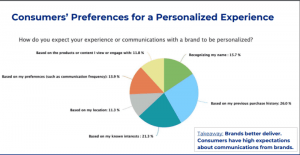Will Web3 And The Metaverse Give Rise To Brand Guidelines 3.0?
Emerging technology leads to evolving brand guidelines. With the rise of ecommerce, trademarks were being copied and exploited in ways they had never been before, and guidelines began to emerge for internal and external teams online. Next, brands had to adapt to social media. The Federal Trade Commission began to take action against influencers, requiring brands to monitor influencers’ product claims. Brands also had to manage how their own employees were interacting with social media.
Now, it’s the metaverse. While brands have only recently begun entering this space, many have already made a substantial investment, and some have already experienced intellectual property (“IP”) infringement. Developing guidelines to specifically address the metaverse will be critical moving forward.
Enforcement
A novel aspect of the metaverse is the ease with which virtual elements can be copied and pasted between 2D and 3D worlds. Brands will need to check for infringing uses of their IP, even in areas (and industries) in which they normally wouldn’t have to be vigilant. While some companies are already enforcing their rights in the metaverse, the potential for infringement is rampant. Companies must ensure that they are monitoring metaverse platforms for infringement and swiftly acting against it.
Expansion of Rights
Not only will brands need to proactively protect their IP in the metaverse, but they will need to think strategically about how they wish to expand their rights. Several companies have already begun staking out IP rights in the metaverse.
For example, a number of fast food businesses have applied for metaverse-related trademark registration. These applications contemplate the opening of virtual restaurants, where consumers may place orders and have physical food delivered. These applications indicate that the brands do not necessarily believe their existing IP rights cover certain conduct in the metaverse. Brands thus will want to review their existing IP protection, and consider broadening their rights in connection with metaverse-related expansion.
This expansion of rights should be done in conversation with sales, marketing, and licensing teams.
Careful Claims
Virtual influencers are influencers just the same in the eyes of regulators, so brands will need to consider claims being made in the metaverse. For example, in April 2022, TruthInAdvertising.org sent a complaint to the FTC concerning hidden advertising potentially deceiving consumers on metaverse platform Roblox. One such form of advertising on Roblox was through avatar influencers who were not disclosing their “material connections” to the brands at issue.
This example is an important reminder that even robot influencers or individuals using avatars must still disclose material connections to the brand at issue. TheTruthInAdvertising complaint also brought emphasized other metaverse-specific advertising concerns, such as the fact that it is not permissible to artificially inflate “likes” for services on a metaverse platform, that games combining advertising and gaming should carefully clarify the advertising portion, and that any sponsored content should be clearly disclosed.
Right of Publicity
A company seeking to promote a brand in the metaverse must be careful not to do so in a way that evokes an affiliation with an identifiable characteristic of one’s persona, unless there is a formal agreement allowing such use. For example, a company should not create a metaverse avatar that resembles a real person.
NFTs
Issuance of unique non-fungible tokens (“NFTs”) is emerging as a new opportunity for companies to engage consumers and foster brand excitement. However, companies should consider the ownership rights being conveyed upon a sale of an NFT before releasing NFTs into the marketplace. Generally, an NFT issuer will want to retain control over the digital work they have created, and limit any transfer of rights to the purchaser.
(14)
Report Post



